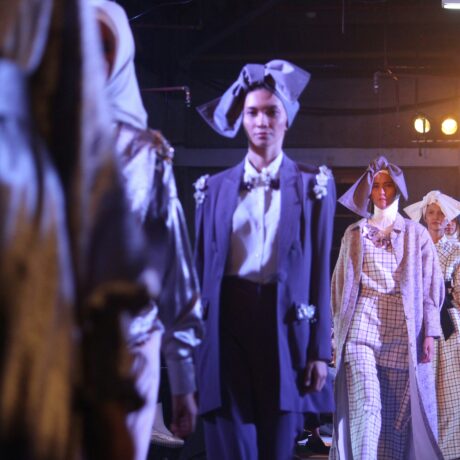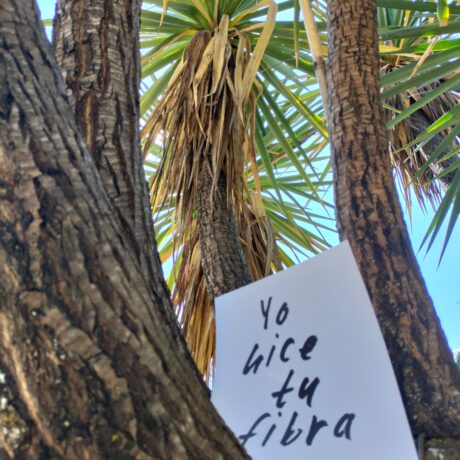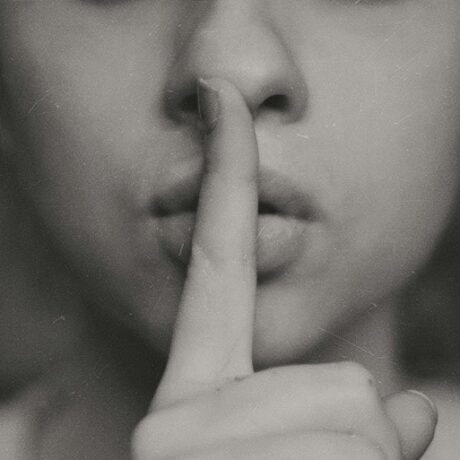What is your fashion utopia?
“Reality is created by the mind”: a simple sentence, a complex concept and a great starting point for building out a practical approach to a better fashion industry. In this guest blog post by Faith Robinson, explore spirituality, sustainability and identity via new research from CogDis titled “Manifesting Utopia”.
We might not realise it, but everyone is manifesting all the time. Despite the woo-woo spiritual connotations, to manifest is simply to turn something from an idea into physical reality using thoughts, feelings and belief. You’re doing it every day as you navigate your life: maybe you’re planning what to have for dinner tonight or where to meet up with your friend on the weekend. You might be manifesting something more long-term, such as where you’ll live when you’re older or dreams of creating a solution to something problematic in society. Before human beings do *anything* in life, we imagine it, envision it and think about it. It’s the only way to make something real. Reality is created by the mind! Not so complex after all, right?
Where the act of manifesting gets really powerful is when it’s placed in the context of systems thinking. Forget the viral Instagram affirmations or privileged wellness content you might see online: to manifest is to get practical by aligning sustainability with spirituality – and everyone can do it. We can supercharge hope by championing ourselves to dream with intention; to vision a collective utopia for a community, an industry, or even a planet and work backwards from that dream to achieve it. It gets even more effective when industries like fashion can show its communities the most positive, ambitious visions of the future for us to work towards. Less dusty dead planets, more thriving healthy environments that actually seem fun *and* possible! What’s required here is not only an intersectional understanding of sustainability in practice (beyond the funnel it exists in today), but also an interconnected approach to our own interpretations of spirituality.
View this post on Instagram
Spirituality isn’t really discussed that much in the fashion and sustainability space here in the Global North. Pledges, commitments, offsets, measurements… in amongst this urgent industry action, too much of the work disregards the power of human feeling. Sure, emotions are less tangible than emissions. But it’s paradoxical that fashion is so spiritually disconnected from itself when *so much* of this work is driven by one of the most powerful human emotions out there: fear.
The tense cognitive dissonance that has defined corporate and/or consumer citizens for years is stifling. It’s emotionally crippling and physically uncomfortable. Where’s the love? The time to embrace our feelings and employ them within our sustainability work is finally here (maybe thanks to the cultural impact of a global pandemic). And “Manifesting Utopia”, a new research project from CogDis is written as a guide to help navigate this journey from fear to fantasy. Check out some highlights below.
Citizens aren’t getting the support they need from brands to collectively generate a better society
As part of “Manifesting Utopia”, we asked 2300 individuals from across the global north questions about spirituality + sustainability. The most shocking finding? While 97% of those we surveyed think about creating a better society, only 4% feel well-equipped to imagine how things can be better in the future. Only 4%! That’s a heart-breaking gap. Fashion urgently needs to give its communities the time, space and tools to flex their imagination muscles. Without imagination, how can we possibly collaborate to get practical with our manifesting and create the better societies this planet requires?
View this post on Instagram
It’s time to stop talking about ‘Conscious Consumers’
Fashion needs to stop with this: we’re all citizens and most of us are basically trying to find ways to be better. That’s why “Manifesting Utopia” introduces a community called Virtue Seekers instead. Virtue Seekers are the 2021 upgrade of what the fashion industry incessantly refers to as ‘Conscious Consumers’ and instead of being defined by restrictive labels like gender, age, job, annual income, religion or location, Virtue Seekers are simply defined by how engaged they are with their own values. This is the human-centric sh*t that fashion news more of. You can be a Static, Steady or Super Virtue Seeker (!), and to find out where you’re at on this journey, take the online Virtue Seeker quiz.
A new type of sustainability leader is emerging
While horizons are more relevant than hierarchies, a new class of virtue seeking, utopian leadership is celebrated in “Manifesting Utopia”. From fashion designers to mutual aid collectives, philanthropists to bird-watchers and digital communicators to contemporary witches, 14 incredible individuals were interviewed to bring some powerful insights together for this unique research project (meet them on the CogDis instagram here). So what’s everyone saying? That relationships with nature, interconnectedness, new ways to express identity and a focus on alternative education are critical for this whole ‘sustainability’ thing to keep rolling in the fashion industry. Easing that anxiousness is key and what helps with this messy process is a sense of connection not only to ourselves but to the cosmos we are all a part of.
So what’s your fashion utopia?
What future are you actively manifesting and working towards? It’s a massive question but a great way to articulate what you’re doing and why you’re interested in this critical (and sometimes confusing) space. It starts by looking inwards. Understanding what ‘spirituality’ means to you is a great place to start. Unlearning is enlightenment: can you recognise and dismantle the different biases you might hold? Networks over rivalry: can connections deliver more for your work than competition? Lead with love: you *can* finally align what you believe in with what you create in this world!
What “Manifesting Utopia” recognises most clearly is that fashion must address its current limits to its own IMAGINATION: not in a creative sense but in a moral sense, collectively. All the tools we need to move forward *already exist*, they just need to be activated and honestly, any of us can decide to do that.
Explore the “Manifesting Utopia” resource google doc here
Sign up to receive the guide here
Listen to the “Manifesting Utopia” podcast here (Spotify) or here (Apple)
Take the online Virtue Seeker quiz by scrolling down here
Follow CogDis on Instagram here
Header illustration by Opashona Ghosh








